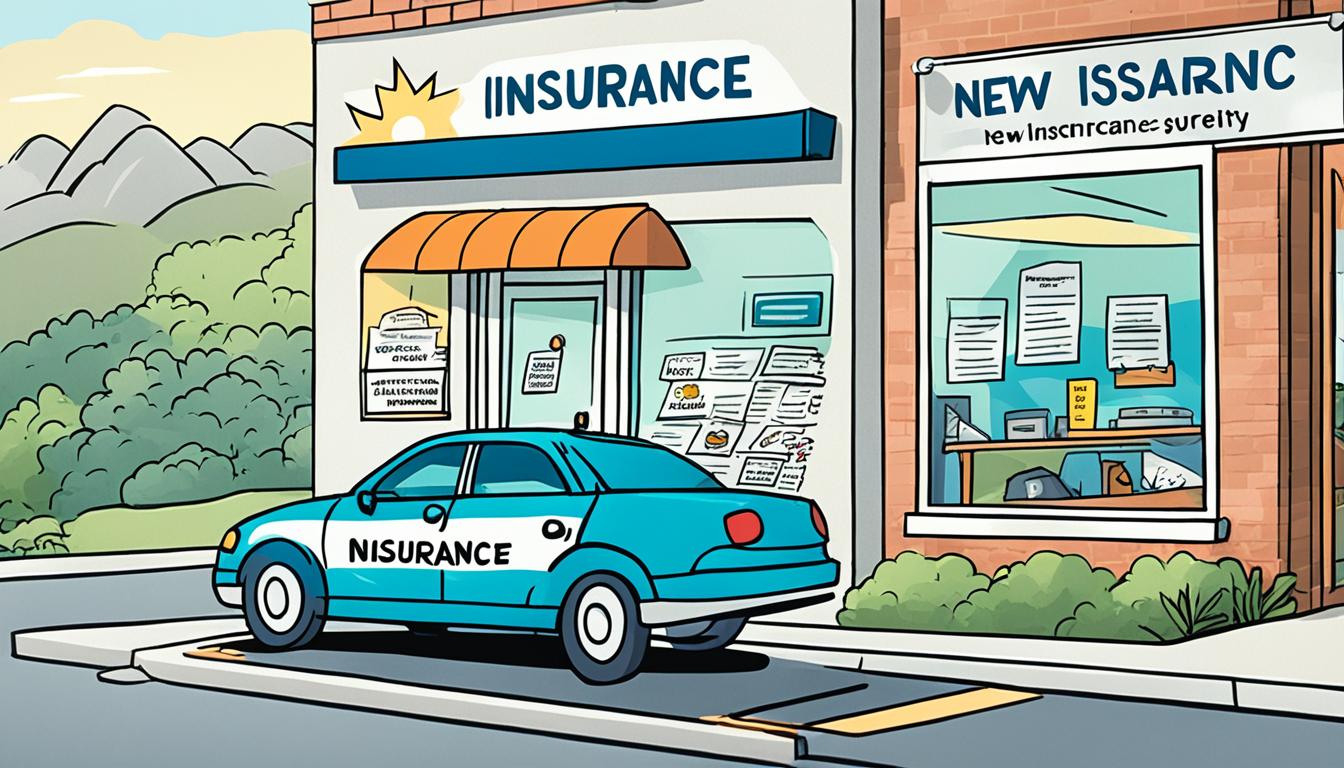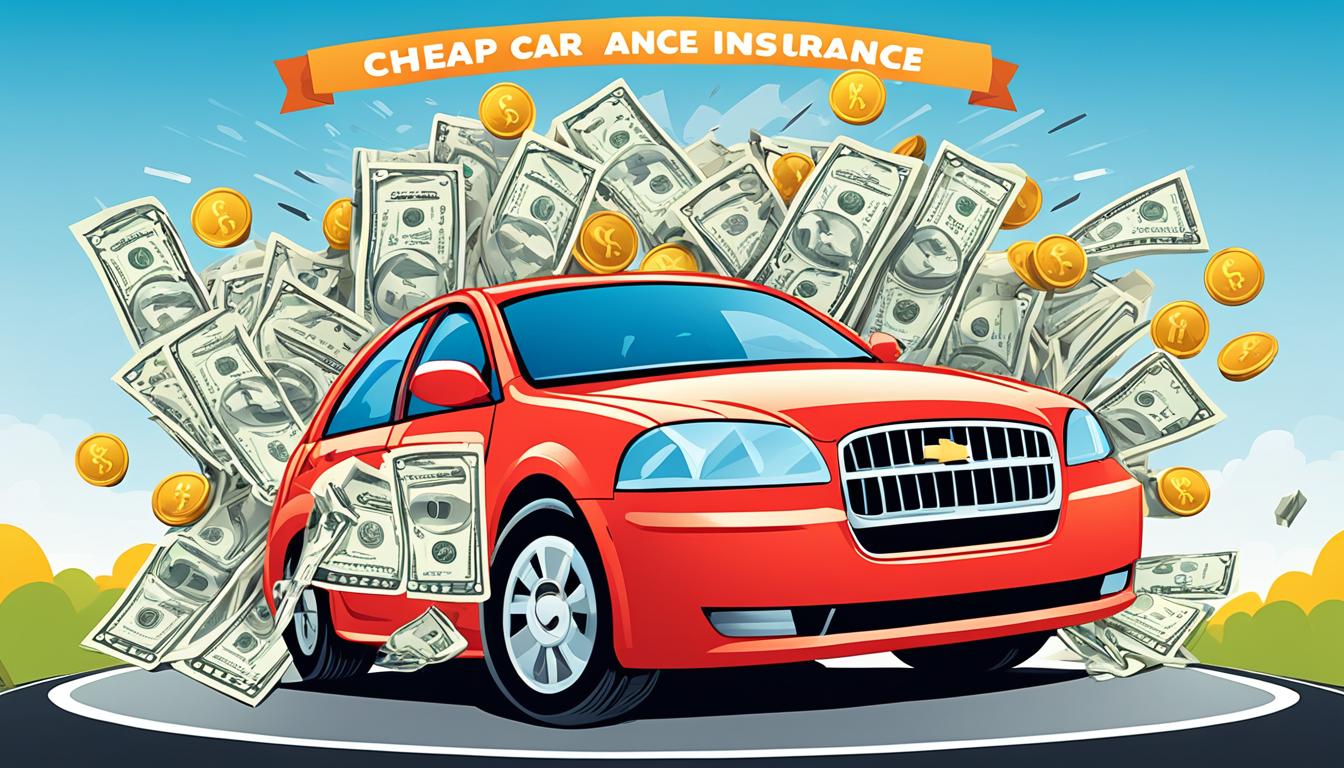Car insurance coverage is a crucial aspect of owning a vehicle. It provides financial protection against unforeseen events such as accidents, theft, or damage. Having the right car insurance coverage ensures that you can repair or replace your vehicle without a significant financial burden. However, with the plethora of options available in the market, finding the best and affordable car insurance coverage can be overwhelming.
In this section, we will guide you through the process of choosing the ideal car insurance plan that fits your needs and budget. We will explore different factors to consider and discuss comprehensive car insurance coverage options that provide comprehensive protection for your vehicle.
- Car insurance coverage is essential for protecting your vehicle and finances.
- Choosing the right car insurance plan requires considering factors such as your budget and specific needs.
- Comprehensive car insurance coverage provides extensive protection against various risks.
- Compare car insurance coverage options to find the best and most affordable plan for you.
- Ensure the car insurance coverage you choose is reliable and meets your state’s legal requirements.
Understanding Car Insurance Coverage Options
When it comes to car insurance, understanding the various coverage options available is key to ensuring you have the right protection for your vehicle. In this section, we will explore the different types of car insurance coverage options and provide details on what each option entails. By comparing the benefits of each coverage type, you can make an informed decision that suits your needs and budget.
Types of Car Insurance Coverage
Car insurance coverage options can vary, but some of the most common types include:
- Liability Coverage: This type of coverage is legally required in most states and helps cover the costs of property damage and bodily injury in case you’re at fault in an accident.
- Collision Coverage: Collision coverage pays for damages to your vehicle in the event of a collision, regardless of who is at fault.
- Comprehensive Coverage: Comprehensive coverage protects your vehicle from damages that are not caused by collisions, such as theft, vandalism, natural disasters, or falling objects.
- Uninsured/Underinsured Motorist Coverage: This coverage helps protect you if you’re involved in an accident with a driver who doesn’t have insurance or has insufficient coverage.
- Medical Payments Coverage: Medical payments coverage helps cover medical expenses for you and your passengers in case of injuries sustained in an accident.
Each type of coverage offers specific benefits and protection. By understanding the differences between them, you can make an informed decision when choosing your car insurance plan.
Comparing Car Insurance Coverage Benefits
Comparing the benefits of different car insurance coverage options can help you determine which plan is best suited for your needs. Consider factors such as:
- The level of coverage provided
- The deductible amount
- Additional benefits or add-ons
- Costs and premiums
By assessing these factors, you can weigh the pros and cons of each coverage option and find the one that offers the best value for your money.
Understanding Car Insurance Coverage Details
It’s important to read and understand the fine print of your car insurance policy to ensure you have the coverage you need. Pay attention to:
- Policy limits and exclusions
- Terms and conditions
- Requirements for filing claims
- Procedures for renewing or cancelling the policy
By familiarizing yourself with these details, you can avoid any surprises or misunderstandings when it comes to your car insurance coverage.
Take a look at the table below for a comprehensive comparison of the different car insurance coverage options:

| Type of Coverage | Benefits | Considerations |
|---|---|---|
| Liability Coverage | Covers property damage and bodily injury caused by you in an accident | Required by law in most states |
| Collision Coverage | Pays for damages to your vehicle in case of a collision | May have a deductible |
| Comprehensive Coverage | Protects against non-collision damages like theft or natural disasters | May have a deductible |
| Uninsured/Underinsured Motorist Coverage | Covers damages caused by uninsured or underinsured drivers | Can provide additional protection |
| Medical Payments Coverage | Helps cover medical expenses for you and your passengers | May have limits on coverage amount |
Finding the Best and Affordable Car Insurance Coverage
When it comes to car insurance, finding the best coverage at an affordable price is crucial. You want to ensure that you have reliable car insurance coverage that not only protects your vehicle but also fits within your budget. Here are some tips and strategies to help you achieve this:
Factors That Affect Insurance Premiums
Several factors can impact your car insurance premiums. It’s important to understand these factors as they can influence the affordability of your coverage. The key factors include:
- Your driving record: A clean driving record with no previous accidents or traffic violations can help you secure lower insurance premiums.
- The type of vehicle you own: The make, model, and year of your car can affect your insurance rates. High-performance or luxury vehicles often come with higher insurance costs.
- Your location: Insurance premiums can vary based on where you live. Areas with high rates of accidents or theft may have higher premiums.
- Your age and gender: Younger drivers, especially males, may face higher insurance rates due to their perceived higher risk.
Knowing these factors can help you understand why your insurance premiums may be higher or lower compared to others. It can also provide insight into how you can potentially reduce your premiums through specific actions.
Ways to Save Money without Compromising Coverage
While affordability is important, it’s crucial not to compromise on reliable car insurance coverage. Fortunately, there are several strategies you can use to save money on your premiums without sacrificing coverage:
- Compare quotes: Obtain quotes from multiple insurance providers to find the best rates for the coverage you need. Comparing quotes allows you to identify potential cost savings.
- Increase deductibles: A higher deductible means a lower premium. Consider raising your deductible if you can afford to pay a higher amount out of pocket in the event of a claim.
- Bundle policies: Many insurance companies offer discounts if you bundle your car insurance with other policies, such as homeowners or renters insurance.
- Ask about discounts: Inquire with your insurance provider about any available discounts. These can range from safe driver discounts to discounts for completing defensive driving courses.
By following these strategies, you can find the best and most affordable car insurance coverage that meets your needs. Remember, it’s essential to strike a balance between cost and the level of protection you require.
Conclusion
Investing in the right car insurance coverage is crucial for safeguarding your vehicle and protecting yourself from unexpected accidents or damages. With a clear understanding of the various coverage options, comparing different plans, and assessing your specific needs, you can find an ideal car insurance policy that offers peace of mind on the road.
When selecting car insurance coverage, it’s essential to prioritize both affordability and reliability. By considering factors such as your driving record, the type of vehicle you own, and potential ways to save money, you can strike a balance between cost and quality coverage.
Remember, accidents can happen at any time, and having the right insurance coverage in place can provide financial security and ensure that you are adequately protected. So take the time to research, evaluate your options, and make an informed decision that aligns with your budget and offers comprehensive protection for your vehicle.


